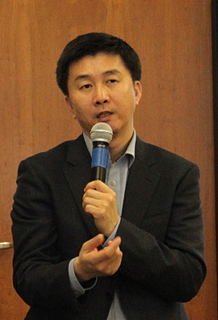A Quote by Lee Hyeon-seo
A huge famine hit North Korea in the mid-1990s. Ultimately, more than a million North Koreans died during the famine, and many only survived by eating grass, bugs, and tree bark.
Related Quotes
In contrast, Western historians, and those in South Korea, say the North attacked the South on June 25, 1950. Both sides agree that after the war began, the North Korean Army captured Seoul in three days and pushed as far south as Pusan before American troops arrived to drive back the North Koreans nearly as far north as the border to China.
It was very shocking for me to read newspapers that openly criticised the government in South Korea. That is impossible in North Korea and almost impossible in China. I was really impressed, and I became addicted to reading the news and watching the media so I could learn about the world. North Koreans would be stunned if they experienced this.
The North Korean Communists are implacably pursuing their military buildup in defiance of the international trend toward rapprochement and of the stark reality of the Korean situation, as well as of the long-cherished aspiration of the 50 million Koreans. The North Koreans have already constructed a number of underground invasion tunnels across the Demilitarized Zone.

































